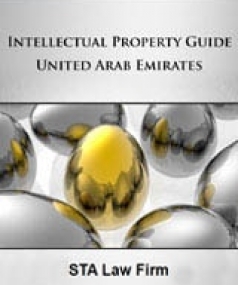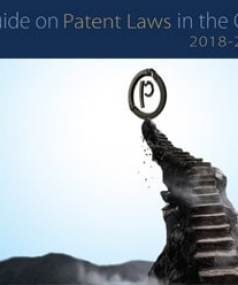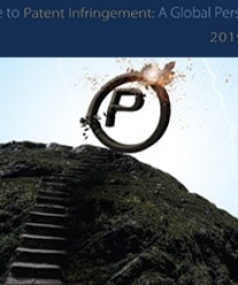Q&A on Patent Laws in the UAE
(Part II of II)
STA’s renowned Intellectual Property team has progressed with the second series of the Q&A on Patent Laws in the UAE based on popular demand by pundits in the intellectual property sphere. In this questionnaire, the Patent Division under the Intellectual Property team has clarified various queries raised by the readers including the courts’ jurisdictional approach, torpedo actions, practical legalities of alternative dispute resolution in patent infringement and enforcement.
(continued)
Q.11. What is the procedure for commencing legal proceedings in patent infringement matters in the UAE?
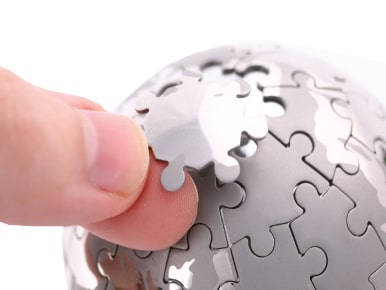 The claimant in an alleged infringement suit is generally required to serve a legal notice for cease and desist prior to instituting a suit at the competent legal forum in the UAE. This provides the alleged infringer with the opportunity to cease all operations and commercial transactions involving the particular product so as to ensure that there is a cap on all future claims. An adequate opportunity of being heard shall be provided to such an infringer by the patent owner of such work. For instance, if 'X' is the patent owner of an invention 'Y' and it comes to the knowledge of 'X' that 'Z' has been dealing in the sale of 'Y' or has been replicating the particulars of the invention without his consent then 'X' shall send a cease and desist letter to inform 'Z' to completely halt all kind of activity in relation to 'Y'. At the same time, 'X' shall warn 'Z' that failure of the same shall be reported by him to the court and that there will be further legal consequences. Before the commencement of legal proceedings on potential patent disputes in UAE, a cease and desist letter is generally always sent in good faith in order to bring to the attention of the alleged infringer that such an activity is in violation of the Federal Law Number 17 of 2002 on Regulation and Protection of Industrial Property of Patents, Industrial Drawings and Designs as later amended by Federal Law Number 31 of 2006 (the Patent Law).
The claimant in an alleged infringement suit is generally required to serve a legal notice for cease and desist prior to instituting a suit at the competent legal forum in the UAE. This provides the alleged infringer with the opportunity to cease all operations and commercial transactions involving the particular product so as to ensure that there is a cap on all future claims. An adequate opportunity of being heard shall be provided to such an infringer by the patent owner of such work. For instance, if 'X' is the patent owner of an invention 'Y' and it comes to the knowledge of 'X' that 'Z' has been dealing in the sale of 'Y' or has been replicating the particulars of the invention without his consent then 'X' shall send a cease and desist letter to inform 'Z' to completely halt all kind of activity in relation to 'Y'. At the same time, 'X' shall warn 'Z' that failure of the same shall be reported by him to the court and that there will be further legal consequences. Before the commencement of legal proceedings on potential patent disputes in UAE, a cease and desist letter is generally always sent in good faith in order to bring to the attention of the alleged infringer that such an activity is in violation of the Federal Law Number 17 of 2002 on Regulation and Protection of Industrial Property of Patents, Industrial Drawings and Designs as later amended by Federal Law Number 31 of 2006 (the Patent Law).
Q.12. Explain in brief the approach of the court (UAE and wider GCC) towards cross-border injunctions?
The courts in the UAE have the authority to grant cross-border or extra-territorial injunctions(both temporary and/or permanent) and the court shall exercise such power after assessing whether infringement has taken place and identifying the degree of infringement in each particular case.
- The owner of a patent right canapply to custom authorities (through the court) in case of cross-border relief, preventing infringed products from entering the geographical borders of the UAE. The Courts may grant temporary and/or permanent orders or injunctions in order to avoid these infringing goods (goods that violate the patent of the patent owner) from entering the UAE.
- The GCC Customs law is a unified law relating to customs matters in the six GCC countries (Bahrain, Kuwait, Qatar, Oman, Saudi Arabia & the United Arab Emirates). If an injunction has been granted by a court of a GCC country, the injunction will be applicable and automatically enforced in other GCC countries as well. However, if an injunction originates from an outside country other than the GCC countries, then the injunction shall be re-assessed by the local courts in UAE based on the local and Sharia law, and consequently, a decision would be issued at the court's discretion.
- The GCC courts can issue injunctions that have extra-territorial effects; however, the applicability of these injunctions depends on the existence of an agreement between the GCC country and the other country.
Q.13. What are torpedo actions and their applicability in cross-border patent infringement matters filed in the UAE?
Article 2 of the Brussels Convention, sets out the rules for jurisdiction and enforcement of judgments across EU member states and holds that an entity should be sued in its country of domicile. A ‘Torpedo action’ is the strategy open to a potential defendant to a cross-border injunction for commencing proceedings in a for (i) a declaration of non-infringement and invalidity of the other party’s claim in respect of a European patent granted in that member state; and (ii)a declaration of non-infringement in respect of the other European patents granted in other member states. UAE courts do not recognize the torpedo actions and therefore, the infringement suit is tried in the jurisdiction where the patent right is breached. If the rights of a patent owner are violated in a foreign country, then the patent owner cannot sue for such an action arising in the UAE courts. The blocking effect of ‘torpedo actions’ occurring outside the UAE, are not recognized in the UAE.
Q.14. Can parties resort to alternative dispute resolution (ADR) methods (such as arbitration and mediation) to resolve disputes on patent infringement?
It is pertinent to note that there is no specific procedure on arbitration relating to patent litigation in the UAE. However, arbitral tribunals will have jurisdiction in cases where the parties agree to resolve disputes arising out of agreements relating to patents (such as a patent license agreement) by ADR methods such as arbitration. No compulsory mediation or arbitration is required in disputes relating to patents in the UAE. Hence, alternative dispute resolution can be used in patent disputes in case the licensing agreement between the parties mentions a mediation or arbitration clause explicitly.
Q. 15. Can a patent holder bring proceedings claiming both patent infringement and unfair competition for the same set of facts?
The practice of attempting to substitute one's goods or products in the market for those of another to deceive the public, leads to unfair competition in intellectual property law. The UAE Competition Law (Federal Law Number 4 of 2012) and Commercial Transactions Law (Federal Law Number 18 of 1993) deals with unfair competition and generally proceedings claiming unfair competition shall be covered under this law. Therefore, the owner of a patent right can raise the contention of unfair competition in a patent infringement case as well.
Q.16. Briefly explain the legislative procedure in patent infringement proceedings and the remedies provided under the Patent Law?
I. Administrative Approach
Pursuant to article 66 of the Patent Law, the Minister of Economy may form a committee chaired by a judge who shall be nominated by the Minister of Justice. The committee will also comprise of two experts on industrial property rights excluding any staff members of the industrial property administration. The primary responsibility of this committee is to examine petitions regarding the enforcement of the Patent Law and its implementing regulations. In case the committee rejects a proposal of the interested party and claims that there is no infringement, then the aggrieved party can approach the competent court to initiate civil and criminal proceedings. The patent infringement proceedings shall be carried out under civil or criminal procedural law depending upon the nature of the action brought forward in the dispute.
II. Judicial Approach
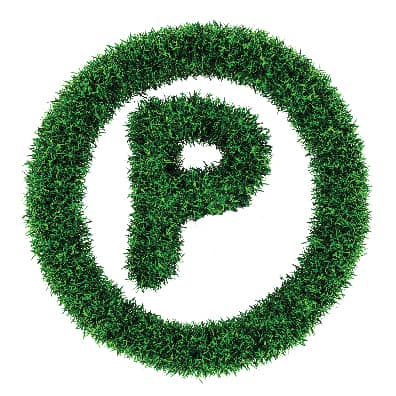 Article 60 of the Patent Law has provided that the owner or the assignee of a patent may request the competent court to issue an order to seize the invention, drawings, designs, or for parts thereof using the industrial property when an infringement or illegal activity which is in breach of the Patent Law or a particular contract takes place. In the event that any aggrieved party (applicant) identifies that another party (infringer) has infringed the rights conferred upon the former by the Patent Law, the former shall file a case in the court of competent jurisdiction in the Emirate in which the infringement has occurred or the damages has arisen. This can be explained further with the following illustration: Suppose a company ‘XYZ’ has registered a patent with the Ministry of Economy’s Dubai office and the rights conferred upon XYZ is infringed by a company ‘ABC’ in the Emirate of Abu Dhabi. In this particular scenario, one should analyse the jurisdiction of the court based on the place where the infringement has taken place and the place where the damages occurred. In such instances, the applicant may impose both civil and criminal (penal) proceedings against the infringer. The civil case shall be towards a claim for compensation for unauthorized use and infringement of the patent right; whereas, criminal case could impose the accused to imprisonment and/ or fine. The court is also conferred with the authority to order the destruction or impairment of the seized invention, drawings, designs, machinery or for parts thereof. In practice, the courts generally refer such matters to an expert to analyze the contentions of the claimant, determine the extent of the breach of the claimant’s rights (if any) and provide the financial implications of such infringement. Thereafter, the competent court will issue its decision and such decision should also be published in the industrial property circular or a daily newspaper by the convicted party.
Article 60 of the Patent Law has provided that the owner or the assignee of a patent may request the competent court to issue an order to seize the invention, drawings, designs, or for parts thereof using the industrial property when an infringement or illegal activity which is in breach of the Patent Law or a particular contract takes place. In the event that any aggrieved party (applicant) identifies that another party (infringer) has infringed the rights conferred upon the former by the Patent Law, the former shall file a case in the court of competent jurisdiction in the Emirate in which the infringement has occurred or the damages has arisen. This can be explained further with the following illustration: Suppose a company ‘XYZ’ has registered a patent with the Ministry of Economy’s Dubai office and the rights conferred upon XYZ is infringed by a company ‘ABC’ in the Emirate of Abu Dhabi. In this particular scenario, one should analyse the jurisdiction of the court based on the place where the infringement has taken place and the place where the damages occurred. In such instances, the applicant may impose both civil and criminal (penal) proceedings against the infringer. The civil case shall be towards a claim for compensation for unauthorized use and infringement of the patent right; whereas, criminal case could impose the accused to imprisonment and/ or fine. The court is also conferred with the authority to order the destruction or impairment of the seized invention, drawings, designs, machinery or for parts thereof. In practice, the courts generally refer such matters to an expert to analyze the contentions of the claimant, determine the extent of the breach of the claimant’s rights (if any) and provide the financial implications of such infringement. Thereafter, the competent court will issue its decision and such decision should also be published in the industrial property circular or a daily newspaper by the convicted party.
Q.17. What are the legal implications in the event an applicant obtains false or forged information to the Ministry of Economy to obtain a patent certificate?
The convicted person in this scenario shall be sentenced to imprisonment for a minimum of three (3) months and maximum of two (2) years and/ or shall be imposed with a fine of minimum of UAE Dirhams five thousand (AED 5,000) months and maximum of UAE Dirhams one hundred thousand (AED 100,000), as mentioned in article 62 of the Patent Law.
Q.18. Can evidence obtained in criminal proceedings be utilized in civil actions and vice versa?
Evidence obtained in criminal proceedings of patent infringement can be used in civil proceedings, and the evidence obtained in civil proceedings can be admitted in criminal proceedings and vice versa. Such information can also be used in any future civil and/ or criminal proceedings amongst the parties.
Q.19. To what extent is pre-trial disclosure permitted for obtaining evidence from an adverse party?
A pre-trial disclosure is a stage of the litigation process where both the parties are required to disclose the documents relevant to the issues in dispute to the other party before the commencement of the trial in court. However, there is no mandatory pre-trial disclosure procedure in the UAE. The evidence is presented during the trial in court or disclosed to the expert as and when the expert requests for the same.
Q.20. What extent of proof is ideally required for a claimant to establish infringement or invalidity in such cases?
The court makes the final decision on whether to accept or reject evidence presented by the parties depending upon the gravity and circumstances of the case. The courts have the discretion to decide on their own merits, whether a suit for infringement exists or not. The court can even appoint experts to determine the validity and infringement in any proceedings. The court may seek the opinion of the experts in the field of dispute resolution or may seek the advice of the administration of Industrial Property (Article 67 of Federal Law Number 31 of 2006). The Court of Cassation (in Civil Appeal Number 81 of 2016) upheld the Court of Appeal's decision where it was held that the report of the panel of experts was right to prove that there no infringement and the system used by the defendant was different to the claimant's patent. Hence, the court may rely on an expert report and determine invalidity and infringement.
Q.21. Are parties afforded any preliminary relief and how long does patent infringement proceedings typically last?
The patent infringement proceedings will vary depending on the circumstances, nature and complexity of the case and therefore it is not possible to settle on a binding timetable of patent proceedings. However, as mentioned in the answer __, the claimant may file an application for the precautionary seizure of the invention, drawings, designs, or for parts thereof using the industrial property when an infringement or illegal activity which is in breach of the Patent Law or a particular contract has taken place.
Q.22. What happens in the event a preliminary injunction is granted by the competent court and the main infringement proceeding is not in favor of the claimant?
In case a preliminary injunction has been granted, however, the main infringement action is lost, then the defendant can apply for damages within 60 days from the date of the final court decision.
An action for compensation can be filed by the attached person, within 60 days from the date of termination of the previous term or from the date of issuing the final decision of refusing the relevant action which the seizor preferred. (Article 61 of Federal Law Number 31 of 2006).
Q.23. Can an aggrieved party to a patent infringement suits file an appeal in the UAE; if so, what is hierarchy of the courts in this regard?
In case the claimant is not satisfied with the decisions taken by the committee (formed by the Minister of Economy under Article 66 of Federal Law Number 31 of 2006), then such decisions may be appealed before the competent court according to the civil procedures law within thirty days as from the date of notification of such a decision before the court. The defeated party can also appeal in the relevant courts according to the hierarchy in UAE jurisdiction, which is from Courts of First Instance; Court of Appeal and Court of Cassation respectively.
Q24. What are the procedures for safeguarding inventions in the the pharmaceutical sector in the UAE?
The inventions in the pharmaceutical industry (on drugs and other compounds) can be protected under the provisions mentioned in the Patent Law, provided the applications:
- are registered in the records; and
- are submitting after conferring with the rules of novelty and priority usage.
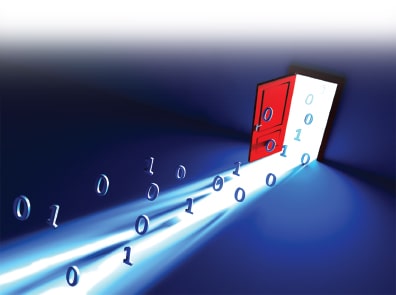 Q.25. What are the significant emerging trends that is visible in the UAE with regards to the enforcement of the Patent Law?
Q.25. What are the significant emerging trends that is visible in the UAE with regards to the enforcement of the Patent Law?
The Ministry of Economy works on accelerating the administrative procedures and convert all systems into an automated system to shorten the length of the application and examination procedures. The aim is to fasten the procedure for proceedings in patent disputes and to deliver justice to parties without any delay. By developing an automated system, the process shall be accelerated and the length of the application shortened.
 English
English
 عربي
عربي Русский
Русский 官话
官话 português
português
 Türk
Türk 





















